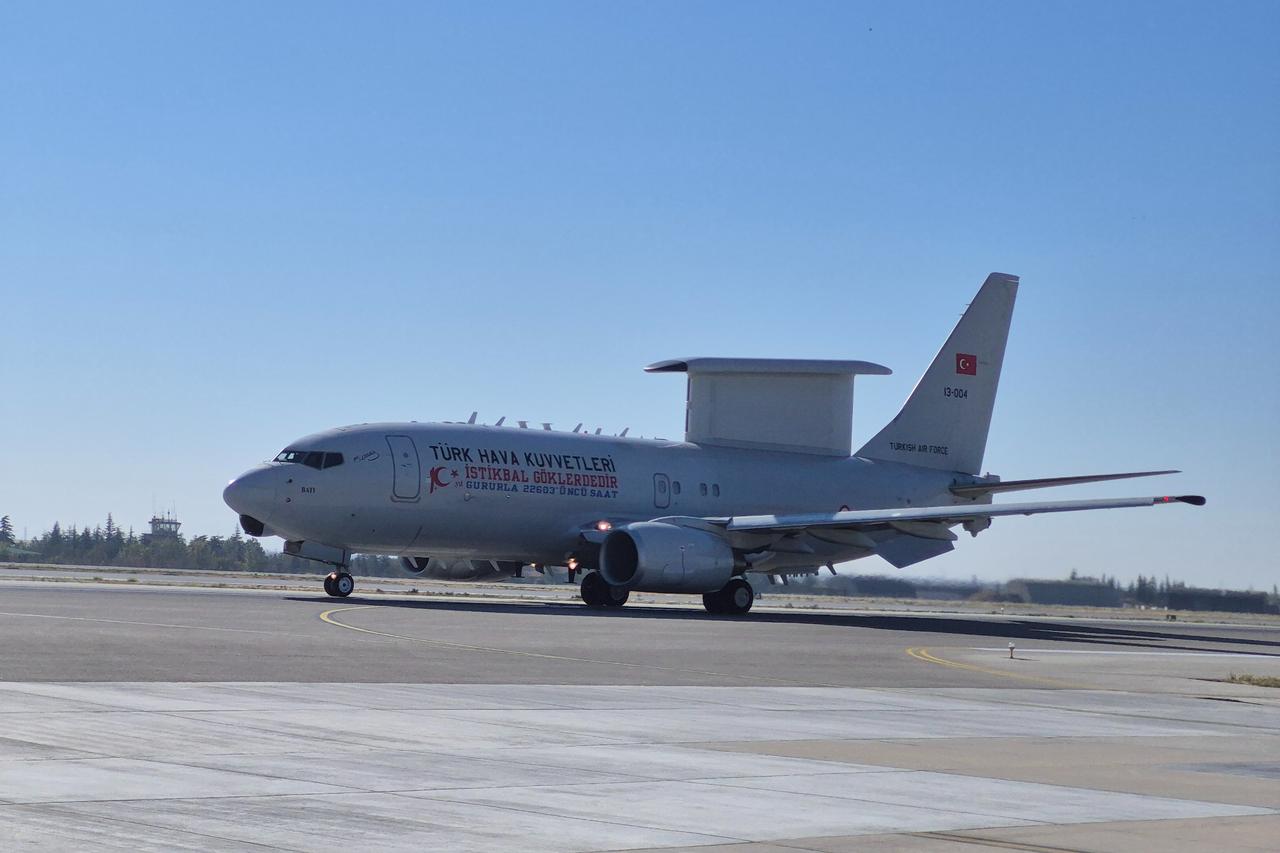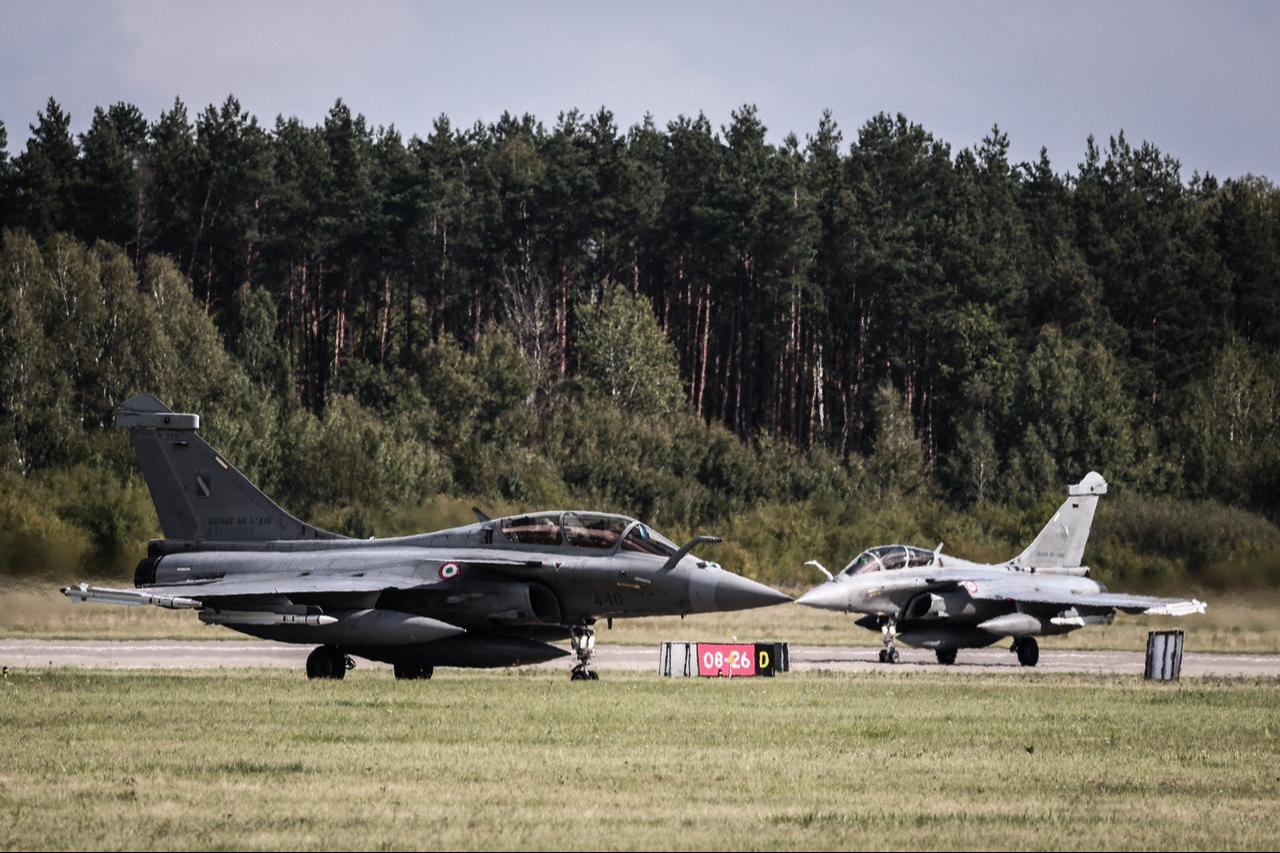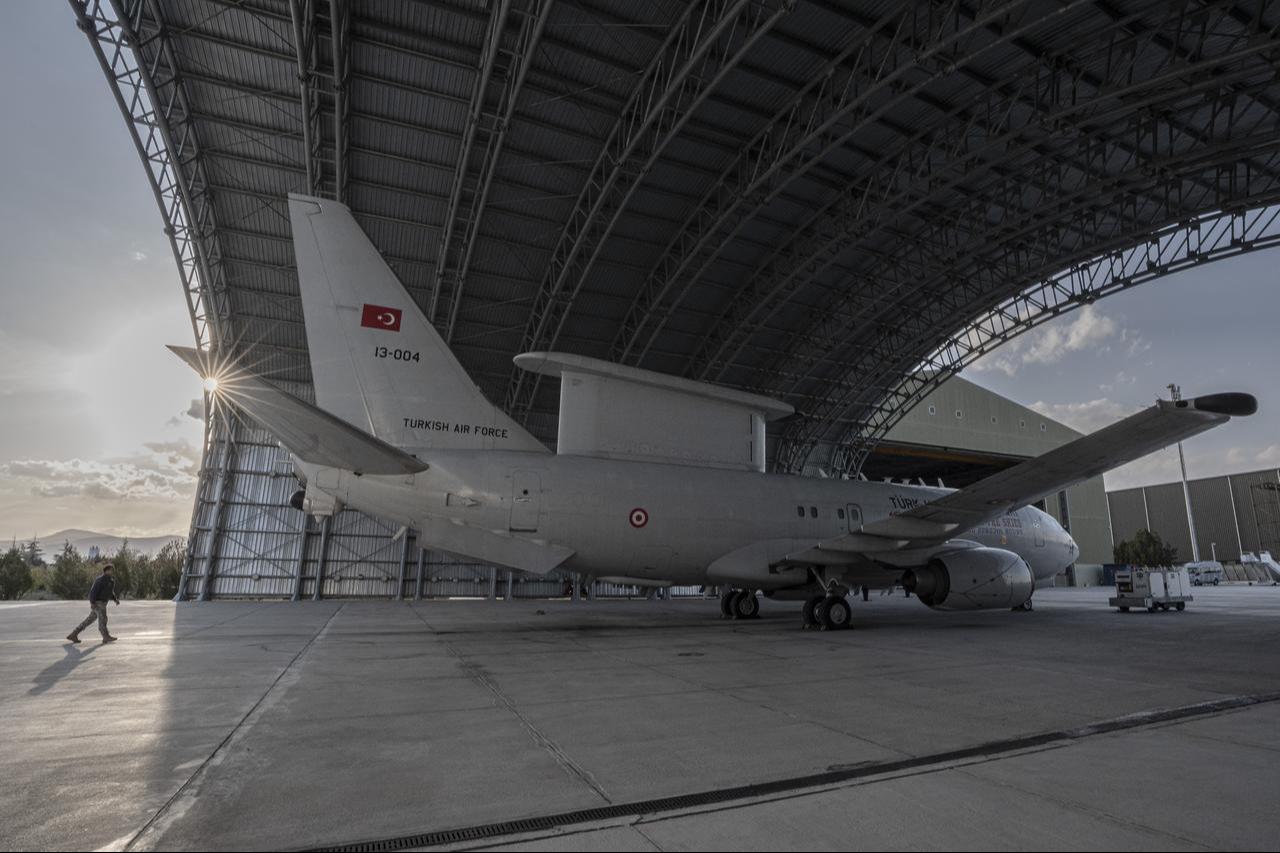
Türkiye deployed an advanced AWACS radar aircraft to Lithuania on Monday following Russian airspace violations, strengthening NATO's Baltic defenses through Thursday.
The airborne warning and control system aircraft can detect low-flying drones and objects that ground radars miss, according to Turkish officials who spoke to Bloomberg on Wednesday, who declined to be identified as the information is not public.
The temporary deployment demonstrates solidarity within the NATO military alliance, the officials said.
At the Ministry of National Defense's weekly press briefing held on Thursday aboard the TCG Istanbul Frigate in Sarayburnu Port, Rear Admiral Zeki Akturk, Press and Public Relations Advisor and Ministry Spokesperson, announced that an Air Warning Control aircraft had been dispatched to Lithuania as part of NATO Assurance Measures.
Akturk stated, "As part of NATO Assurance Measures, our Air Warning Control (AEW&C) aircraft are conducting missions in Lithuanian airspace between September 22nd and 25th. Two of our F-16 aircraft are participating in Integrated Air and Missile Defense Operations Training, conducted in Romanian airspace today (Sept. 25) as part of Flexible Deterrence Options, conducted by the NATO Air Component Command within the scope of Enhanced Vigilance Activities."
The move follows three Russian fighter jets spending 12 minutes in Estonian airspace, prompting Estonia to call for emergency meetings at NATO and the United Nations Security Council.
Russian drones also breached Polish and Romanian airspace in recent weeks, while military drones crossed into Lithuania from Belarus in July.
NATO members are coordinating responses to the increasing number of Russian incursions, although alliance partners have expressed different approaches.
Germany warned against shooting down Russian aircraft, while U.S. President Donald Trump showed openness to more aggressive measures, backed by Poland and the Baltic states.

French President Emmanuel Macron, speaking Wednesday from New York, said NATO should "step up a notch" regarding "new Russian provocations" but stopped short of endorsing shooting down planes.
Lithuania's Defense Minister Dovile Sakaliene requested Spanish Eurofighter jets stationed at Siauliai Air Base to engage Russian drones violating airspace.
Spanish Defense Minister Margarita Robles, visiting the Spanish contingent of 150 soldiers and eight Eurofighter jets contributing to NATO's Baltic Air Policing Mission, resisted direct engagement.
"Spain and NATO will oppose any escalation of tensions because disputes must be resolved through diplomatic channels," Robles said.
Italy extended its anti-aircraft system deployment in Estonia in response to the incursions. Sweden and Poland launched the Gotland Sentry military exercise to strengthen the defense of the strategic Baltic Sea island.
The Turkish Air Force Boeing 737-700 AEW&C, registration 13-004 with callsign HVK42, conducted intelligence, surveillance and reconnaissance missions over Romania and the western Black Sea on Sept. 22 before entering Polish airspace en route to Lithuania, according to the reports.

The Peace Eagle AEW&C system offers significant aerial dominance, serving as an advanced command and control center.
Its capabilities include radar detection range exceeding 200 nautical miles, IFF system diagnostics covering 300 nautical miles in diameter, and electronic support measures for intelligence gathering.
The system features real-time communication through HF, V/UHF, UHF, and SATCOM radios with Link-11 and Link-16 tactical data links.
It creates joint aerial pictures by combining information from tracks outside coverage areas with radar and tactical data.
Spanish officials reported their military aircraft carrying Defense Minister Robles to Lithuania experienced brief GPS jamming approximately 60 kilometers (37.2 miles) from Russia's Kaliningrad region.
The interference had no effect due to the aircraft's military-grade navigation system, which is resistant to such attacks.
"We know where the interference came from," Robles said, referring to Russia without naming it directly.
Spanish Defense Ministry sources confirmed GPS jamming attempts are common on routes near Kaliningrad, located between Poland, Lithuania and the Baltic Sea.